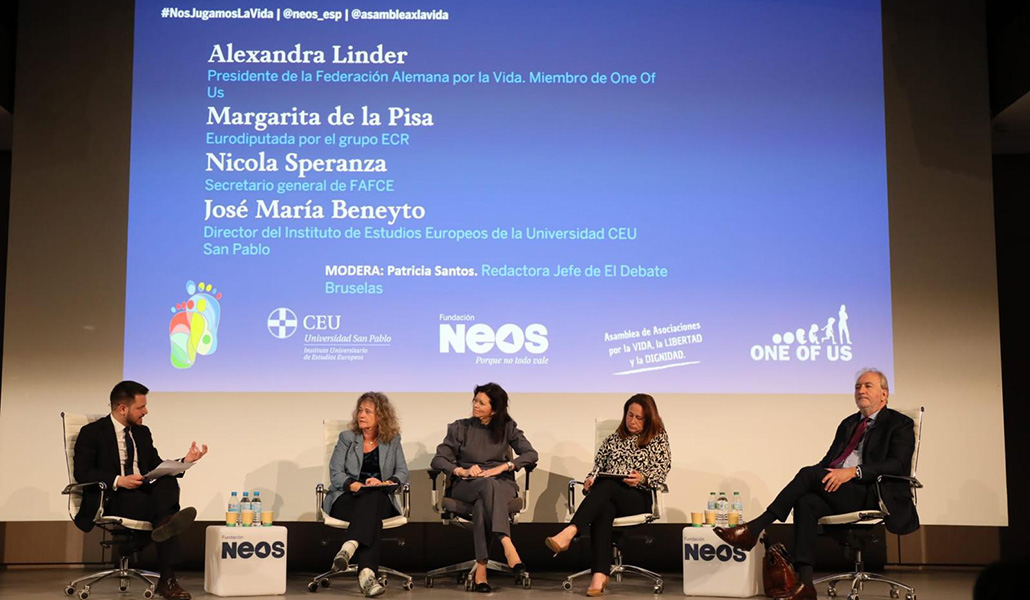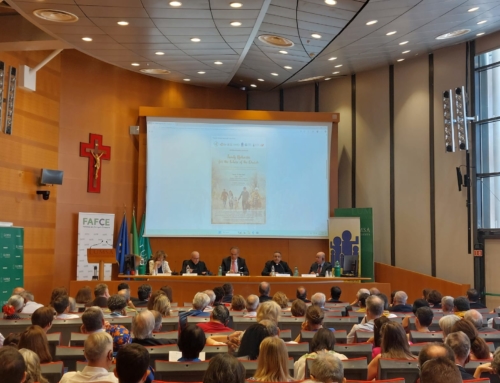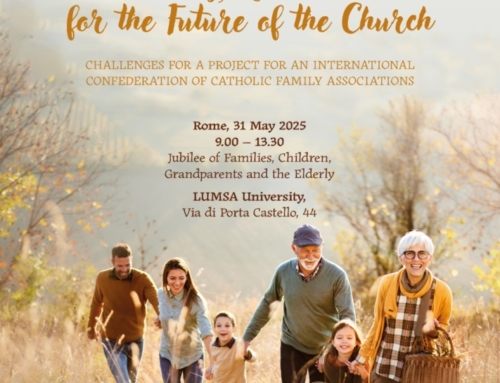Brussels, 30th April 2024
On Monday 29th April, FAFCE Secretary General Nicola Speranza intervened at a conference in Madrid organised by the NEOS Foundation. The conference was entitled We are risking our lives: the soul of Europe and was co-hosted by an assembly of pro-life organisations based in Spain, as well as One of Us and the university of San Pablo CEU.
The speakers included NEOS president Jaime Mayor Oreja, pro-life assembly coordinator Josep Miró, Vice President of One of Us Pablo Siegrist, academic Maria Calvo, El Debate correspondent Patricia Santos, MEP Margarita de la Pisa (ECR), CEU Director José María Beneyto, German pro-life activist Alexandra Linder, French Catholic philosopher Fabrice Hadjadj, and more. The event was broadcasted and covered by Spanish national media outlet El Debate.
FAFCE’s Secretary General Nicola Speranza said: “Older generations are seen as a financial burden”, adding that European societies are “losing their humanity”.
In an interview with Catholic outlet Alfa & Omega, Speranza said that “these events show that we are not alone. In Europe, it is easy to feel that Christians are alone in seeing the beauty of humanity. While we may be a minority, we can be a creative minority that becomes much more than what we think we are”.
In Europe, “we are risking a lot”, he said. “In reality, we are risking life. Every human life matters and that is why we reject the threats to life and human dignity in Europe”.
“When it comes to demography, Europe is committing suicide. People are slowly but surely taking notice of the demographic winter, which we have been speaking up about for years. The lack of desire to have families is creating a loneliness crisis in European nations”.
Reflecting on the lack of protagonisation of the family at the European level, Speranza reminded that the family must be considered the “fundamental cell of society – this reality is why we are in Brussels”.
“We must be more conscious of the impact of policies on the family. We cannot wait for our problems to be solved by politics in Europe. Political life is not only played out in elections. It is played first and foremost in our own families, and in our ability to network: the family and family networks are antidotes to loneliness, which is the social illness of our time.”








